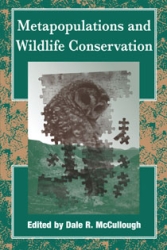
William Z. Lidicker Jr.
Dr. William Lidicker is an ecologist, conservation biologist, and vertebrate biologist. His research interests include population dynamics, social behavior, population genetics, mammalian systematics, evolution, and landscape ecology. During his tenure at the University of California Berkeley, he has published extensively and taught courses encompassing these and other interests. He has served as president of the American Society of Mammalogists and the International Federation of Mammalogists, and chaired IUCN committees. He is currently Professor of Integrative Biology and Curator of Mammals (Museum of Vertebrate Zoology) Emeritus.


